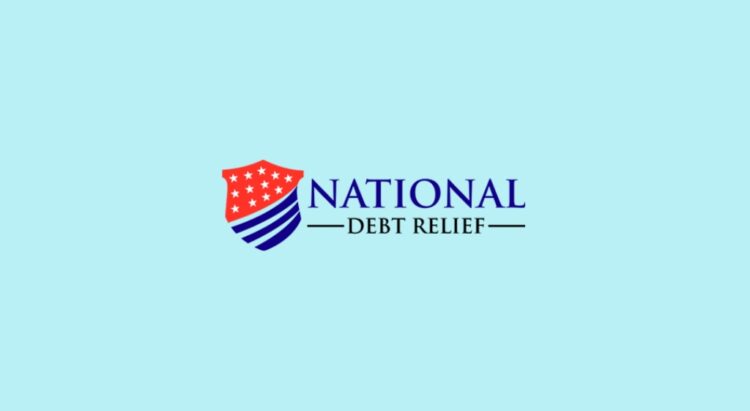The contemporary era of education is deeply entwined with student loans. As countless students prepare to enter higher education, they also brace for the financial obligations that come with it. The looming resumption of student loan payments is not just a headline; it’s a stark reality for millions.
Amid this financial panorama, understanding the nuances of loan payment resumption and managing student debt becomes vital. With so much at stake, from personal financial health to broader economic implications, turning to reliable guidance, like that provided by National Debt Relief, can light the way. As the loan grace periods end and notifications start arriving, being well-equipped with loan repayment strategies and insights becomes an essential shield against potential financial strain.
Page Contents
Embarking on a Structured Repayment Journey
Diving back into loan repayments can seem daunting, especially after a hiatus. The waters of student debt are murky, and without a clear plan, it’s easy to feel overwhelmed. But take a deep breath and remember: every challenge can be navigated with the right loan repayment strategies.
By understanding the different avenues available and gaining insights from trustworthy companies like National Debt Relief, you can make informed decisions that cater to your financial situation. With careful planning, consistent efforts, and a dash of financial acumen, you can steer your loan repayment journey toward smoother shores. Let’s delve into these loan repayment strategies to help you reclaim control over your student debt.
Understanding Loan Grace Periods

Source: mos.com
Grace periods are a boon—a brief respite after graduation where payments are momentarily halted. Think of it as a buffer, giving you time to secure employment and stabilize financially before the student loan bills start arriving. According to the U.S. Department of Education, loan grace periods can last up to six months for certain loans.
But remember, just because you don’t have to make payments doesn’t mean interest isn’t accumulating. It’s a golden opportunity to get ahead—starting repayments earlier, even during this period, can reduce the overall interest accrued, giving you a jump-start on debt management.
Financial Planning
The essence of easing any financial burden is robust financial planning. While diving into the intricacies of budgeting might seem tedious, it’s the cornerstone of effective student debt management. Resources like Federal Student Aid offer valuable insights on how to kickstart this process.
By designating parts of your income toward your loan and setting aside an emergency fund, you can circumvent many unforeseen financial hiccups. Moreover, integrating tools like loan calculators and budget apps can streamline the process, making it easier to visualize your financial journey and adjust strategies.
Debt Counseling

Source: nerdwallet.com
Embarking on the path of loan repayment doesn’t have to be a solitary journey. Debt counselling can be your compass in the convoluted world of student loans. National Debt Relief and other organizations offer counselling sessions to demystify the loan landscape. These sessions aim to educate borrowers about their options, potential pitfalls, and strategies tailored to their unique financial scenarios.
Additionally, Federal Student Aid emphasizes the importance of understanding your rights and responsibilities as a borrower. A well-informed decision, backed by expert advice, can be the difference between a manageable repayment journey and a financial quagmire.
Federal Repayment Plans
Navigating the maze of federal student loans can seem daunting, but there’s a beacon of hope: diverse federal repayment plans tailored to various financial scenarios. According to the U.S. Department of Education, borrowers have multiple options, from income-driven repayment plans to extended or graduated plans.
This flexibility ensures that your repayment strategy can evolve with you as life changes—maybe through career shifts or family growth. Knowledge of these options is crucial, as the right choice can significantly ease your monthly financial burden and set you on a smoother path toward clearing your student debt.
Private Loan Adjustments

Source: bankrate.com
Private loans, unlike their federal counterparts, come with a different set of challenges and opportunities. They’re often perceived as rigid, but many lenders show increased flexibility, especially in a post-pandemic world. While they might not offer as many formalized repayment plan options as federal loans, they do present room for negotiation.
Proactively communicating with your lender can lead to adjustments in interest rates or temporary payment pauses in dire situations. Remember, lenders often prefer a renegotiation over a default. Armed with information, like the insights from National Debt Relief, can empower borrowers to confidently approach these negotiations and secure more favourable terms.
Drawing the Blueprint
Before getting back to loan repayments, sketching out a clear financial blueprint is pivotal. This means understanding your financial landscape, from monthly income and essential expenses to discretionary spending. With many tools and resources available online, like those from National Debt Relief, crafting this blueprint has never been more accessible.
An effective strategy often begins with discerning where every dollar goes, allowing for more informed decisions. Incorporating this level of detail ensures that when loan payments resume, you’re not caught off guard but rather have a well-planned path to tread.
Share these insights with your peers. Navigating student loan repayments is easier with the proper guidance. National Debt Relief can assist you in heading in the right direction with your student loan repayments.
Behind the Compass: National Debt Relief’s Mission and Drive

Source: debt.org
Founded on the principles of integrity and transparency, National Debt Relief has long championed financial education and empowerment. Every individual grappling with student debt deserves guidance and support. This philosophy is deeply rooted in their belief that informed decisions are the pillars of financial stability. Over the years, they’ve seen the transformative power of sound financial advice and aim to make it accessible to all.
Their insights stem from years of experience, and each success story fuels their passion to make a difference. As the dynamics of student loans evolve, they continuously refine their strategies to stay ahead of challenges. With the looming resumption of student loan payments, the need for trusted information and reliable strategies has become paramount.
Under the leadership of their CEO, Alex Kleyner, they’ve cultivated a culture of empathy and expertise. Their dedicated team works tirelessly to deliver solutions tailored to individual needs, ensuring everyone has the resources to navigate their financial journey with confidence. National Debt Relief understands the weight of student loan responsibilities and strives to be the guiding light in a complex landscape.
- What does “loan payment resumption” mean?
As the pause on federal student loan payments ends, loan payment resumption refers to borrowers beginning to make regular payments on their student loans again.
- When will I need to start making payments again?
The exact date will depend on your loan servicer, but you should receive a notification about the resumption at least 21 days before your payment is due.
- How can I find out how much I owe?
You can log in to your account on the Federal Student Aid website to view your loan details, including your total balance and interest rates.
- What if I can’t afford my payments?
It’s essential to contact your loan servicer immediately. You may be eligible for income-driven repayment plans, loan consolidation, or other options to lower your monthly payment.
- What happens if I don’t restart my payments?
Not resuming payments can lead to delinquency, affect your credit score, and potentially lead to default. Communicating any financial difficulties with your loan servicer to explore options is crucial.





